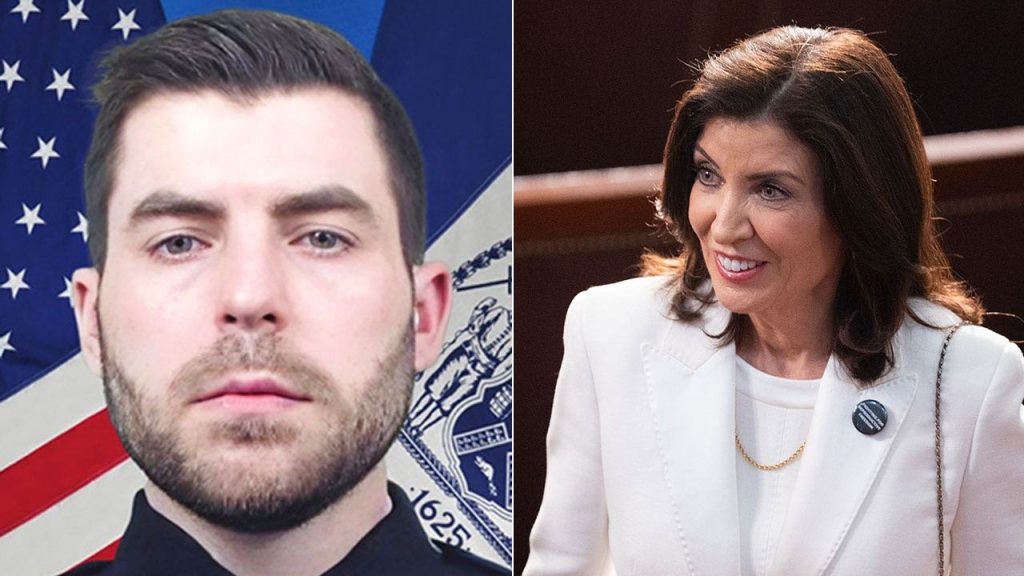A retired 9/11 first responder and neighbor of slain NYPD Officer Jonathan Diller criticized Governor Kathy Hochul, as well as liberal district attorneys and judges, for having “blood on their hands” in response to Diller’s fatal shooting during a traffic stop. Guy Rivera, who allegedly opened fire on police during the traffic stop, had at least 20 prior arrests. The driver of the vehicle, Lindy Jones, also had at least 20 prior arrests. Diller, a 31-year-old officer and father of a young son, was fatally shot during the incident. Another retired NYPD officer, Michael Blangiforti, criticized Hochul for supporting bail reform policies that he believes contributed to Diller’s death, calling for a change in policy direction.
Blangiforti criticized Governor Hochul’s response to the tragedy as a “canned statement,” calling for a more meaningful acknowledgment of the impact of policies that he believes led to Diller’s death. He argued that bail reform policies and revolving door justice have contributed to a lack of accountability for repeat offenders and perpetrators of violent crimes. Blangiforti, who served in the NYPD for 20 years, emphasized the need for a shift in policy to address the underlying issues that have led to tragedies like Diller’s death. He called out the lack of accountability on the part of judges and district attorneys in releasing violent criminals back onto the streets.
New York City Mayor Eric Adams echoed concerns about recidivism and mental illness contributing to violent crime in the city, calling for legislative action to address these issues. Adams emphasized the impact of Diller’s death on his family and the community, highlighting the need for systemic changes in response to the tragedy. He pointed to the criminal histories of the suspects in Diller’s shooting as evidence of a larger recidivism problem facing law enforcement in the city. Adams called on Albany lawmakers to enact legislation to combat these issues and improve public safety.
Blangiforti expressed concern about the perception of law enforcement officers and the impact of negative media coverage on public perception. He argued that the attitudes towards police officers have worsened in recent years, leading to a lack of respect and accountability for law enforcement officials. Blangiforti highlighted the dangers faced by officers like Diller in the line of duty and called for a greater focus on supporting and protecting law enforcement personnel. He emphasized the importance of holding accountable those responsible for releasing violent offenders back into the community and called for a shift in policy to prioritize public safety.
Blangiforti emphasized that the impact of policies like bail reform extends beyond law enforcement officers to impact everyday citizens who are victims of violent crimes. He criticized the prioritization of criminals’ rights over the safety of regular citizens and called for a reevaluation of the current criminal justice system. Blangiforti highlighted the need for a more balanced approach to addressing crime and public safety, calling for greater accountability for those who contribute to the release of dangerous offenders back into society. He emphasized the importance of standing in solidarity with law enforcement personnel, both active and retired, in the face of tragedies like Diller’s death.
Blangiforti, reflecting on his own experiences as a law enforcement officer, underscored the importance of honoring and supporting officers like Diller who have made the ultimate sacrifice in the line of duty. He expressed a commitment to attending Diller’s funeral as a show of solidarity and respect for his service. Blangiforti emphasized the enduring bond shared among law enforcement officers, whether active or retired, and the shared sense of loss and grief in the face of such tragedies. He called for a renewed focus on protecting and supporting law enforcement personnel in the face of increasing challenges and dangers in the line of duty.


